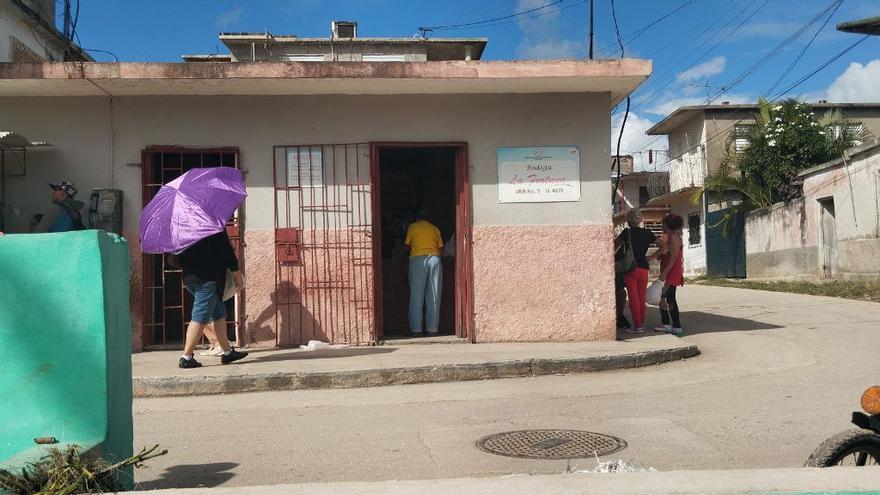
![]() 14ymedio, Miguel García, Holguín, 5 December 2023 — La Fortuna has nothing left of the old enthusiasm that prompted it to be baptized with such a name. The rationed market bodega, located on Carretera Central, Reparto Alex Urquiola, in the city of Holguín, woke up practically empty this Tuesday. The surrounding residents were impatient because the regulated quota of rice has not yet arrived on this fifth day of December, a time of year when consumption and prices increase.
14ymedio, Miguel García, Holguín, 5 December 2023 — La Fortuna has nothing left of the old enthusiasm that prompted it to be baptized with such a name. The rationed market bodega, located on Carretera Central, Reparto Alex Urquiola, in the city of Holguín, woke up practically empty this Tuesday. The surrounding residents were impatient because the regulated quota of rice has not yet arrived on this fifth day of December, a time of year when consumption and prices increase.
Several people gathered around the premises this morning in search of answers. “I don’t understand it, honestly,” stressed a woman who had been excited to see some acquaintances enter the store, but as she approached, she understood that they were people inquiring about grain. “I was hoping that they were already selling this month’s allotment, so I wouldn’t have to pay almost 200 pesos a pound for it, but no.”
In some bodegas in the Pueblo Nuevo popular council, only 10 ounces of peas and one packet of coffee have arrived per person, both corresponding to the allotment for this last month of 2023. In others, not even that. “This is bad,” said another frustrated customer who arrived at the point of sale. “Nothing here and on the street a pound of pork is already 470 pesos and the only chicken you find is in MSMEs*, at 12,000 per box of thigh and leg.”
In some bodegas of the popular council of Pueblo Nuevo, only 10 ounces of peas and one sachet of coffee have arrived per person, both corresponding to the December allotment
The data provided by an elderly woman was added to the calculations of the Holguín resident who also approached the corner. “They haven’t brought bread for like two days, there are areas here that don’t even supply milk for the children. Anyone who can, has to buy all that from outside, at the price the sellers ask for.” The conversation continued to revolve around the shortages and in the impromptu gathering the topic of the sugar shortage came up.
“In my house we are sweetening with raspadura [panela],” said another client with an empty bag and a protective umbrella. Contacts with some guajiros [farmers] who live near a sugar mill have helped her family “at least not to add to this bitterness, also the other one, that of coffee without sugar,” she points out. “But they are small pieces, you have to be careful not to scratch your finger when you grate them.”
Made with sugar molasses, raspadura is a traditional Cuban sweet that began to disappear years ago due to the plummeting sugar harvests and the emergence of other more colorful and varied sweets. Unlike other countries, such as Colombia, where its use as a sweetener is still widespread, on the Island it has become a product that the elderly keep in their memories or that is only consumed in rural areas.
“You’re lucky that you have raspadura!” a passerby was heard saying who managed to hear the catharsis that was coming from La Fortuna, that business that was once named in honor of the lucky star and now only displays its empty shelves and dozens of dissatisfied customers.
*Translator’s note: Many of Cuba’s micro, small and medium sized businesses that are ostensibly private, in reality are often controlled by government figures.
____________
COLLABORATE WITH OUR WORK: The 14ymedio team is committed to practicing serious journalism that reflects Cuba’s reality in all its depth. Thank you for joining us on this long journey. We invite you to continue supporting us by becoming a member of 14ymedio now. Together we can continue transforming journalism in Cuba.
